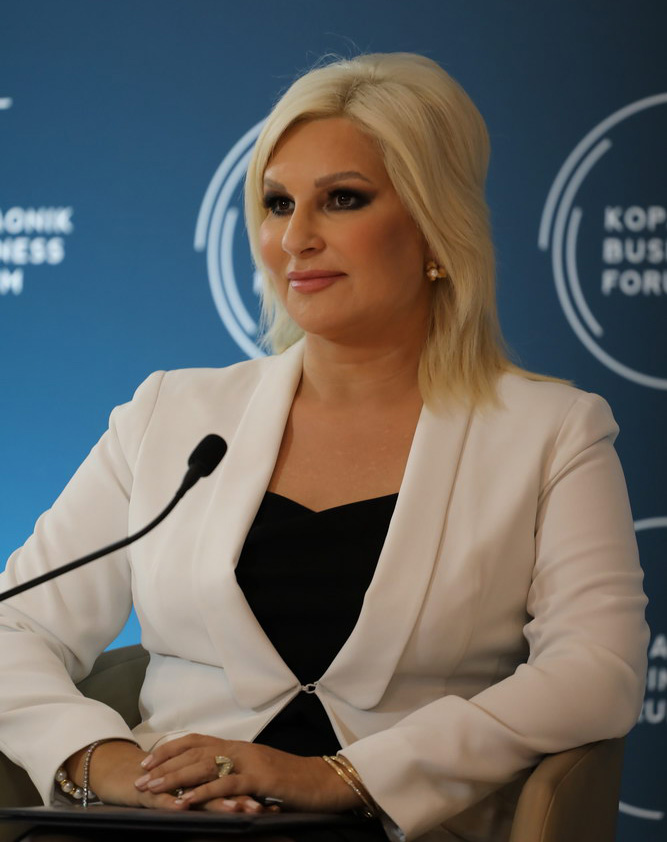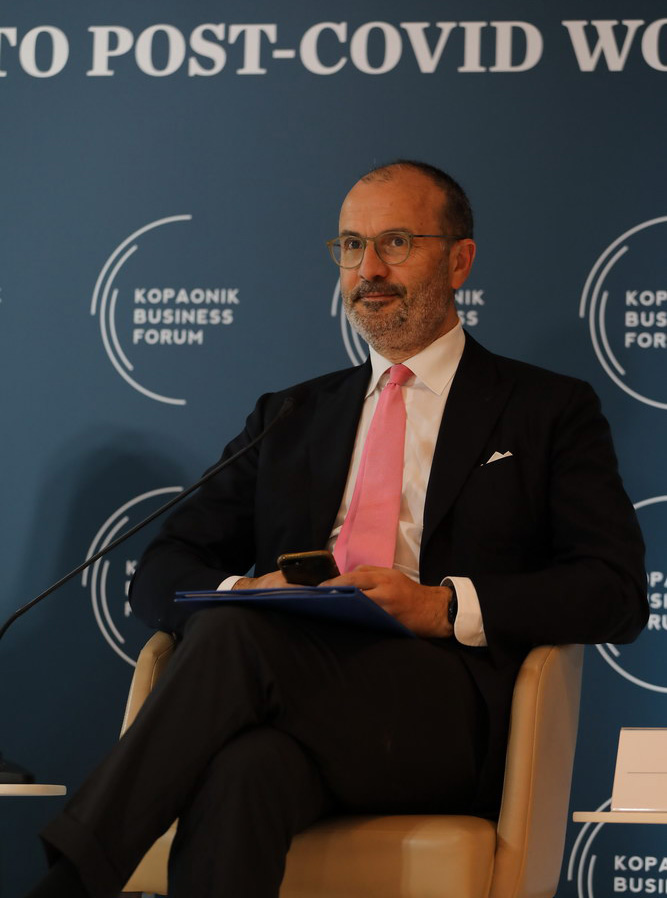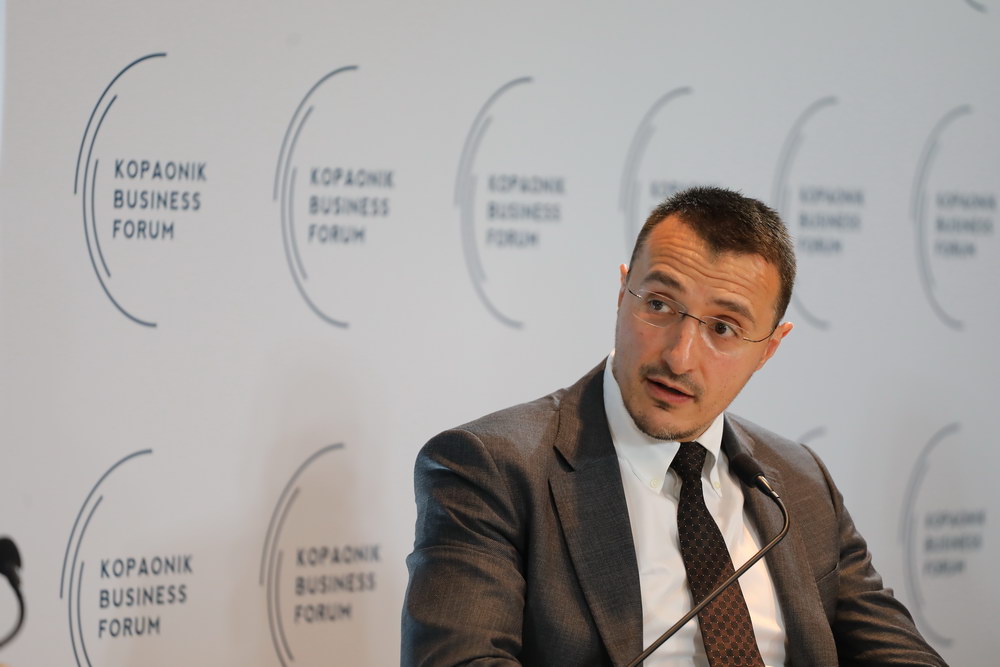Serbia has great potential to increase the production of clean energy from renewable sources. The next big step, along with the continued development of wind farms, is investing in solar power plants. A good framework has been set to improve the country’s energy efficiency and long-term energy security. The opinion of the panel dedicated to green and sustainable recovery at the Kopaonik Business Forum is that cooperation between the state and the private sector, with the support of banks, is the key to rapid progress in the transition to energy sustainability.
During the panel, it was pointed out that we are witnessing a great movement for green and sustainable energy. At the beginning of the panel, Zorana Mihajlović, Deputy Prime Minister of the Republic of Serbia and Minister of Mining and Energy, emphasised that the issue of energy transition and the green answer cannot wait. “The state has changed certain laws and passed new ones in the areas of energy and mining, which are the basis for what we want to do,” said Zorana Mihajlović, adding that for the first time Serbia has the Law on Renewable Energy Sources, which is the basis for producing electricity from renewable energy sources. Speaking about energy efficiency, she said that the goal is to increase energy efficiency and that we currently consume 40% more energy compared to EU countries.

She pointed out that it is important to make an investment plan, mapping out the direction of Serbia, to make the country more energy efficient. She added that a new energy strategy is being made and that we must take care of the development of the energy sector and environmental protection.
Ambassador Sam Fabrizi, Head of the European Union delegation to Serbia, congratulated the minister on the activities and added that Serbia is on the right path “Energy efficiency and renewable sources are of key importance. Serbia has a regional approach and is increasingly linked to the green agreement. The government is doing well in the gas sector, and Serbia is taking good steps in that direction,” said Sam Fabrizi. He added that the EU has long advocated control of carbon emissions and that the desire is to reduce it to zero by 2050.

Jelena Popara from NIS pointed out the successful projects that the company has implemented. “NIS has completed a large deep processing project aiming to reduce fuel oil with high sulphur content. Thanks to this project, they have reduced emissions of sulphur oxides by 98% and nitrogen oxides by 9.8%“, said Popara.
Matteo Colangeli, Regional Director of the European Bank for Reconstruction and Development (EBRD) for the Western Balkans, expressed satisfaction with attending the Kopaonik Business Forum and discussing green energy. “We have invested EUR 600 million, the plan is to continue investing as this topic is important for the country and the citizens. Investments are also important because of the competitiveness of the Serbian economy. Serbia has achieved great success in terms of the availability of green energy. We want Serbia to be more energy-efficient and we want large companies and SMEs to benefit from that“, Matteo Colangeli pointed out, adding that solar energy and wind power plants are the future.

Miloš Colić from New Energy Solutions said that the procedures are good, that he does not expect the simplification of procedures, but that he expects predictability in the context that there is an assessment of what the situation would look like in 5-7 years.
The support of the European Union to the energy sector of Serbia has amounted to more than EUR 830 million from 2000 up to now. The energy sector is in the focus of the EU because it has a great impact on all other sectors of the society. The EU projects in the energy sector lower the dependence on fossil fuels, increase usage of renewable energy sources and increase energy efficiency.
In Serbia, the projects from this area ensure a stable energy supply respecting the environment, encourage the liberalisation of the market and of the investments.
The support from the European Union is implemented in cooperation with the Serbian Government. The European Union is by far the biggest investor, trade partner and the biggest donor to Serbia. With over EUR 3 billion in non-refundable aid to Serbia in the last two decades, the EU is supporting Serbia to become a more prosperous, sustainable, fair, secure and democratic country, prepared to join the Union.




